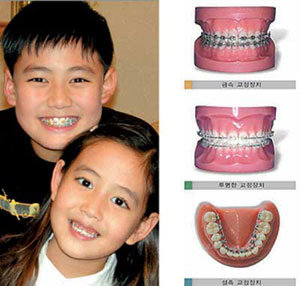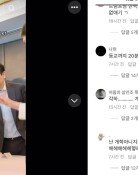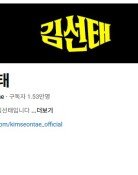Crooked Permanent Teeth, Age 8 is the High Time for Treatment
Crooked Permanent Teeth, Age 8 is the High Time for Treatment
Posted October. 26, 2003 23:16,

Childrens baby teeth start to fall when they are 6 years old and permanent teeth start to come out, and the shape and size of it at that time will follow throughout his/her whole lifetime.
At that time, if the teeth are discordant, the teeth grow crooked and moreover, it drops the chewing ability. It also affects the muscles around the mouth and the tongue, making a strange pronunciation, and brings bad habits such as sucking their fingers and sticking out their tongue.
Chairman Lee said, There are children who feel inferior because of their crooked teeth and are reluctant of going to school and turn introverted. Straightening their teeth will help them find mental relief and confidence.
Permanent teeth become ugly if baby teeth are not cared for: More than half of the children who come to the dentist to straighten their teeth are because their teeth are crooked. The next major reasons are that their front tooth sticks out (bucktooth) and their lower jaw protrudes like a lantern jaw.
Many of the children who have an irregular set of teeth had their baby teeth spoiled from cavities, eating fast food, and eating sweets. If the baby teeth are damaged, the permanent teeth that comes after will settle on a wrong spot, forming a mismatch altogether.
So, regular dental checkups should be taken after all the baby teeth, starting at age 2, are out, to prevent cavities.
The change in the childrens face shape also causes mismatched set of teeth. When the face becomes oval and the jawbone narrows, space lacks for the baby teeth to grow, and then it grows crooked. Primarily, baby teeth have to grow with space in between each of them, so that there is plenty space for the permanent teeth to set place in.
Choosing the right time brings the best results: When there is a problem with the bone structure like mandibular microsomnia, a lantern jaw or a small lower jaw, or asymmetric face, it is best to treat it while the bone structure is growing. There are no other ways to treat than having surgery after the bone structure is fully grown.
Generally, 7 years old for lantern jaw, and 9-10 years of age for mandibular microsomnia is appropriate for treatment. If the face is crooked, depending on the conditions, it should be treated between 8-12 years of age.
If the chin protrudes too much, it is best to have surgery after the bone stops growing when the children are past 18 years of age. It is better to receive treatment to straighten the teeth before taking the surgery to adjust the jaw. By doing this, it is to straighten the teeth grown in the wrong direction because of the protruded jaw in advance and recover their chewing ability. It is the same for mandibular microsomnia.
It takes two years to straighten the teeth and the protruded jaw and hare-lip may take over five years.
Orthodontic devices: There are three kinds of devices. The metallic device, which is commonly seen, the transparent straightening device which is made from ceramic or plastic to be less shown, and lingual straightening device, which is placed on the inner side of the tooth so it doesnt show from the outside.
The metallic device is the most commonly used and the cost is 5-6 million won (according to a university hospital), more inexpensive than the rest. Recently, as appearances become more important, the transparent or the lingual device is being preferred.
The transparent device has a demerit in that it is weaker than the metallic one, and the size of it is large and has slower progress, but lately, the use of reinforced plastic and improvement on the design has complemented its demerits. It costs around 6-7 million won, according to a university hospital.
The merit of a lingual device is that is doesnt show at all from the outside. Women at work and broadcasters usually prefer it. It is expensive and costs around 10 million won, and there may be difficulties in pronunciation at the beginning.
Jin-Han Lee likeday@donga.com







